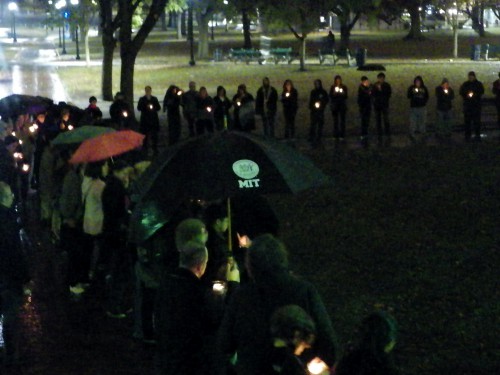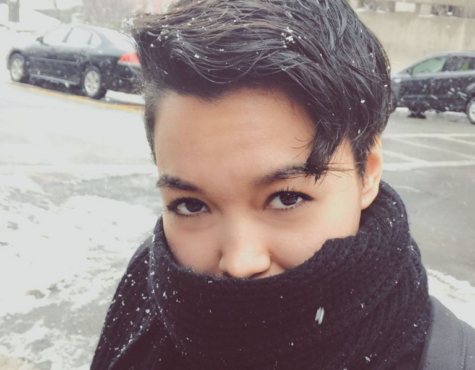An event that began in Massachusetts and has now spread internationally, the Transgender Day of Remembrance was founded with the purpose to honor all those who were murdered or took their own lives due to prejudice and discrimination towards their choice of lifestyle.
The incident that sparked this tradition was the murder of transgender woman Rita Hester, a citizen of Allston/Brighton who was stabbed to death in her home Nov. 28, 1998. The transgender community in Boston was then angered when media coverage from The Boston Globe and even Boston’s then-LGBT paper Bay Windows refused to refer to Hester as a woman, instead reporting her as a “gay man” and using masculine pronouns which she did not identify with.
Bishop Shaw welcomed all guests to the Cathedral of St. Paul on Sunday Nov. 17.
“It is an honor for me to have all of you here. I am about to retire after working for this chapter for 20 years, and I have to say that having you in the cathedral is a huge blessing for my spiritual life. So welcome, and please use this church tonight in any way that is best for you.”
The first speaker of the night was Janice Josephine Carney, a transgender woman who is a veteran of Vietnam. Carney shared how being in the military forced her to ignore her sexuality and her desire to be feminine, instead taking part in activities that she deemed would make her more manly to the eyes of those who surrounded her, such as heavy drinking.

“They beat the girl out of my boy, or so they tried,” Carney said. “Be a man, stand up for yourself, go punch him back. I then joined the Marines. Butch it up, suck it up and try harder. That’s what I did for 12 years. I took being a man to another level.”
Fari Sattar, a 20-year-old transman from India, then shared his story of growing up in New Delhi and how his move to the U.S. helped him express himself as a male.
“As a little girl, I was always on the boys team for tag, played soccer with the guys, and even ignored all the other girls because they had ‘cooties.’ Basically to the outside world, I was just a tomboy.”
Sattar said that at 14 years old he watched the movie “Boys Don’t Cry,” even after his mother had told him he was “too young” to watch it. It was the first time that he was able to connect his internal feelings to something in the popular culture.
“It was never the sad ending that suck with me. It was the fact that his movie had a character that felt the same exact way that I did. They knew that they were a boy; that the body that they wore wasn’t the right one.”
Upon arriving to Boston, Sattar connected with Boston Alliance of Gay, Lesbian, and Transgender Youth (BAGLY) where he found the support and inspiration from other youth like him.
“There were people, youth, who identified as transgender were using their preferred pronouns, and that was okay. When stating my preferred pronoun, I remember saying male, but then quickly saying that female was fine as well. However, many caught along to my fears, and they referred to me as male.”
Following the two speakers, the community was invited to say a few words or a short story with all the guests. As people rose to the microphone, they shared with the audience personal memories of friends and family who had committed suicide due to hate towards their gender identity that they could not tolerate as well as words of encouragement to those facing similar circumstances. Over 20 people lined up to speak.
The ceremony ended with a letter from a transgender woman from Nevada who is currently incarcerated.
“We, especially us transgenders, must fight,” the letter read. “We must use our pain, our fears, our sadness to end the silence and turn that to our enemies. We must never give our precious tears to those who hate us or misunderstand us. Use all that you have and fight.”













